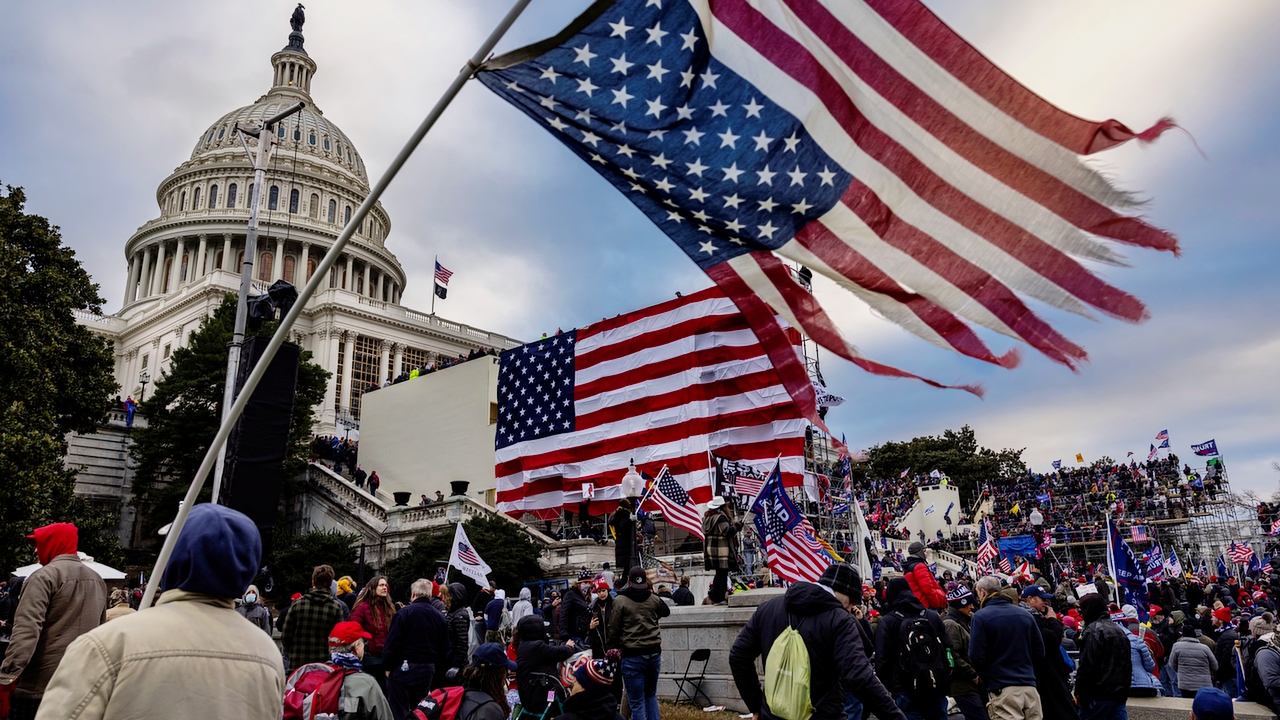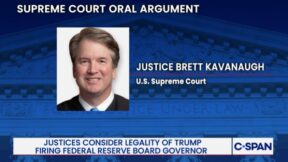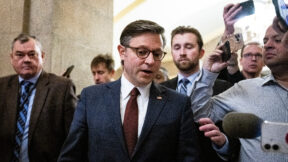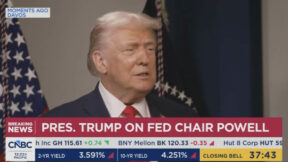Trump Pentagon Chiefs Esper, Mattis Pen Landmark Letter With 11 Ex-Military Leaders: Armed Forces Must Not Show ‘Fealty to an Individual’

Brent Stirton/Getty Images
Thirteen former leaders of the U.S. military penned a sharply worded letter on Tuesday reaffirming the “core principles” that dictate the civil-military relationship in the country – while sounding the alarm on the internal dangers facing American democracy.
“We are in an exceptionally challenging civil-military environment. Many of the factors that shape civil-military relations have undergone extreme strain in recent years,” the letter begins, striking an ominous tone.
Eight former secretaries of defense and 5 former chairmen of the Joint Chiefs of Staff signed the letter, which went on to argue that the military drawdowns from Iraq and Afghanistan coupled with the pandemic and the political polarization in the U.S. have led to an unprecedented situation in the country.
While the letter tries to skirt domestic politics, Jan. 6 and former President Donald Trump are alluded to.
“Politically, military professionals confront an extremely adverse environment characterized by the divisiveness of affective polarization that culminated in the first election in over a century when the peaceful transfer of political power was disrupted and in doubt,” the former military leaders noted.
“Looking ahead, all of these factors could well get worse before they get better,” the letter then cautions, and adds:
In such an environment, it is helpful to review the core principles and best practices by which civilian and military professionals have conducted healthy American civil-military relations in the past — and can continue to do so, if vigilant and mindful.
The letter then goes on to list 16 principles the signatories believe are crucial to the survival of U.S. democracy.
The first principle reaffirms civilian control of the military as a key foundation of U.S. democracy:
Civilian control of the military is part of the bedrock foundation of American democracy. The democratic project is not threatened by the existence of a powerful standing military so long as civilian and military leaders — and the rank-and-file they lead — embrace and implement effective civilian control.
The second principle declares that all military and civilian leadership and service members must serve the Constitution first. “Military officers swear an oath to support and defend the Constitution, not an oath of fealty to an individual or to an office,” the letter reads.
The next four principles lay out how civilian control of the military is vested in all three branches of the U.S. government. The letter then goes on to explain the need and best practices for “effective civil-military relations.”
“The military has an obligation to assist civilian leaders in both the executive and legislative branches in the development of wise and ethical directives but must implement them provided that the directives are legal,” the letter then states and adds civilian leaders “have the right to be wrong, meaning they have the right to insist on a policy or direction that proves, in hindsight, to have been a mistake.”
Principle 13 goes on to detail the need for “Mutual trust” between the military and the civilian leadership of the country. The next principle lays out the military’s role in domestic law enforcement and its relationship to the national guard, concluding, “In most cases, the military should play a supporting rather than a leading role to law enforcement.”
The letter then notes, “There are significant limits on the public role of military personnel in partisan politics, as outlined in longstanding Defense Department policy and regulations. Members of the military accept limits on the public expression of their private views — limits that would be unconstitutional if imposed on other citizens.”
Finally the letter explains the military’s role during a presidential election and notes it must “assist the current commander-in-chief in the exercise of his or her constitutional duty to preserve, protect, and defend the Constitution of the United States.”
The letter was signed by the following former officials:
Former Secretaries of Defense
Dr. Ashton Baldwin Carter
William Sebastian Cohen
Dr. Mark Thomas Esper
Dr. Robert Michael Gates
Charles Timothy Hagel
James Norman Mattis
Leon Edward Panetta
Dr. William James PerryFormer Chairmen of the Joint Chiefs of Staff
Gen. (ret.) Martin Edward Dempsey
Gen. (ret.) Joseph Francis Dunford Jr.
Adm. (ret.) Michael Glenn Mullen
Gen. (ret.) Richard Bowman Myers
Gen. (ret.) Peter Pace
—
New: The Mediaite One-Sheet Newsletter
Your daily summary and analysis of what the many, many media newsletters are saying and reporting. Subscribe now!






Comments
↓ Scroll down for comments ↓